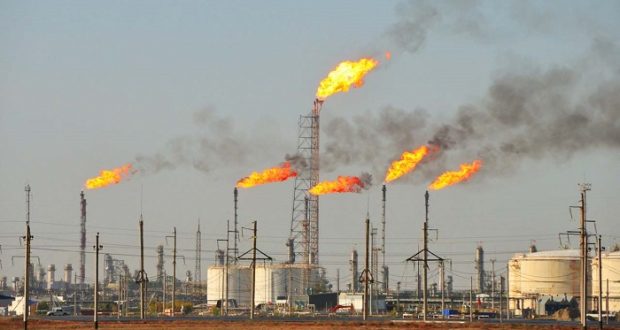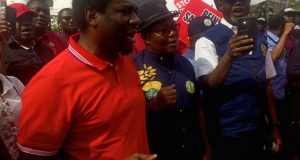Stakeholders in the gas industry have said that, as the 2023 general election approaches, the electorate should vote for candidates who have the political will to tackle gas flaring in the country.
A cluster of civil society organisations (CSOs) all decried the hazard of gas flaring at a one-day gas flaring/political dialogue, supported by United States Agency for International Development (USAID).
The event, held on Friday, December 9, 2022, in Abuja, had as its theme “Accountability for Gas Flared and Clean Energy Advocacy Project”.
The project is anchored by Initiative for Community Development (ICD), Warri, Delta State.
In her presentation, ICD’s Programme Manager, Mrs Ufuoma Asheshe, described gas flaring as the burning of natural gas associated with oil extraction.
She said that the CSOs must engage Ministries, Departments and Agencies (MDAs) to prevail on politicians to see how they could include in their agenda, efforts to tackle gas flaring in the country when elected.
“There must be political will on the part of our leaders to tackle gas flaring,” Asheshe said.
While decrying the effect of gas flaring, Asheshe said that reports indicate that Nigeria is one of the top seven gas-flaring countries.
“Nigeria is a major gas flarer/global Green House Gas Emission.
“Only in 2018 and 2019, Nigeria lost $680 million in penalty fees to International Oil Companies (IOCs) due to discrepancy in the reported volume of gas flared.
“We have a lot of things that we need money to do in this country and we are just losing money like that.
“These are of huge economic, environmental and criminal implication to Nigeria.”
She urged the Federal Government to be proactive in dealing with environmental degradation due to oil exploration in order to tackle the health and economic hazards of gas flaring.
On her part, Executive Director, Centre for Transparency Advocation (CTA), Ms Faith Nwadishi, said that the objective of the dialogue was to facilitate the elimination of the discrepancy in the volume of gas flared.
“It also aimed at ascertaining and tracking penalty payment for gas being flared by the IOCs.”
Also speaking, Project Monitoring Officer of Murna Foundation, Mr Bashir Mukthar, attributed the discrepancy in the reported volume of gas flared, and inadequate technology for tracking the exact volume of gas being flared.
“The Nigeria Extractive Industry Transparency Initiative (NEITI), an agency saddled with the responsibility, had to rely on the figures provided by the IOCs who usually under-declare in order to evade payment of adequate penalty fees.”
Similarly, Mr Anayo Akwiti, a veteran journalist, urged the media to engage in advocacy to attract government’s attention to the issues of gas flaring.
The Secretary, Garki Traditional Council, Mr Lazarus Nyaholo, said that the electorate must vote wisely in 2023.
“Nigerians must vote leaders that are accountable to ensure that they tackle the issues of illegal mining and flaring of gas.”
For Mrs Mary Ibrahim, Senior Special Assistant to the Chairman, Abuja Municipal Area Council (AMAC), women and children bear the brunt of gas flaring.
“Women and children are the most vulnerable of all victims of environmental degradation, we urge politicians to expedite efforts at ameliorating the plight of citizens,” she said.
 Financial Energy Review
Financial Energy Review





